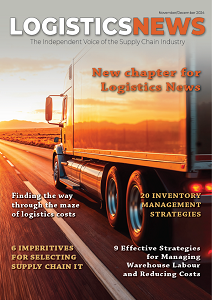Foreign investors and South African industry players seem to be taking a 'wait and see' approach to industrial and manufacturing growth, putting the country at risk of falling behind its neighbours. However, investment in automation now could help boost the manufacturing sector, with benefits for the country's overall economic growth
This is according to automation industry stakeholders, speaking ahead of the Africa Automation Fair set for June 2019 in Johannesburg.
Frikkie Streicher, business development manager at process instrumentation manufacturer Vega, says automation and Industry 4.0 presents huge opportunities for South Africa to start exploiting and beneficiating its natural resources cost-effectively and efficiently.
“Automation could address challenges across industries – boosting manufacturing production and reducing injuries on mines. Companies like ours have pushed Industry 4.0 very hard, but the industry has been slow to invest, for several reasons. There are concerns about South Africa’s political landscape, concerns about potential job losses and their impact on labour forces, and infrastructure challenges. Large-scale investment in smart manufacturing won’t take place in an environment not perceived to be stable,” he says.
Streicher says many industries are also sweating outdated equipment due to funding challenges. “It’s unfortunate that we are failing to embrace advanced automation, because the opportunities are vast, especially in the South African context where we have lagged so far behind the world. We risk being overtaken on the continent by North Africa and investor-friendly countries such as Ghana, Rwanda and Mauritius. South Africa needs to simultaneously create a stable landscape for investors, build out critical infrastructure and get our workforces up to speed to become globally competitive,” he says.
Embracing world-class models
Dave Wibberley, managing director at Adroit Technologies, says South Africa needs to strive to become a world-class manufacturer: “We can put down intelligent sensors and cloud technologies, but unless a manufacturer is embracing world-class manufacturing models, eliminating waste and driving value flow, Industry 4.0 tools and technologies will not be truly transformative.”
Wibberley says South African manufacturing leaders at this stage are typically those in the automotive industry, with international principals, and not local companies. “We need to do more around promoting world-class manufacturing techniques if we want to be a world-class manufacturing country,” he says.
While the pace of economic growth remains sluggish, there are positive signs in the industry. According to Statistics South Africa, manufacturing production increased by 1.6% year-on-year in November 2018, and the rand had recovered some lost ground in November and December last year.
The Africa Automation Fair 2019 exhibition and conference will illustrate ways to overcome manufacturing stagnation and fast track growth, by showcasing the latest technologies, solutions and models for next-generation manufacturing. Presented by Reed Exhibitions, Africa Automation Fair and the Connected Industries Conference will be staged from 4 to 6 June 2019 at the Ticketpro Dome, Northgate, Johannesburg.

.png)


